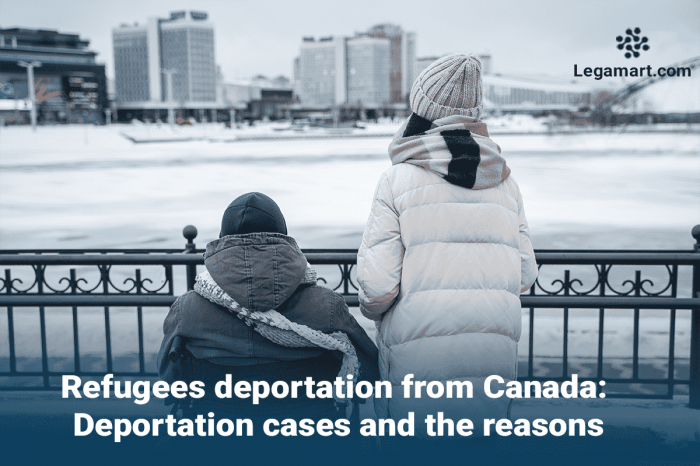Immigration Law
Refugees
Legal issues relating to refugees go beyond the fundamental concepts of non-refoulement and asylum. The safety, wellbeing, and integration of refugees into their host communities are all protected rights. Yet, access to assistance can be difficult and the legal frameworks that protect refugees can be convoluted. Therefore, it is crucial to have a thorough understanding of refugee law to guarantee that refugees are supported and protected in the proper manner.
-
Determine refugee status (RSD)
-
Protection of refugees in their home countries
-
Family reunification
-
Work & employment
-
Legal Aid
-
Why a lawyer could be needed by refugees
Determine refugee status (RSD)
The RSD procedure is crucial to the protection of refugees. It entails locating people who have left their home country but are unable or unable to do so because of legitimate worries about being persecuted or hurt. National authorities or UNHCR, the UN Refugee Agency, are normally responsible for determining a person’s refugee status. In the RSD process, the background of the refugee is evaluated, including their nationality, ethnicity, political views, religion, gender, and social group, all of which can have a big impact on their need for protection.
Protection of refugees in their home countries
The principle of non-refoulement, which is at the heart of refugee law, forbids returning refugees to their home nations if doing so would put their lives or freedom in danger due to their race, religion, nationality, membership in a particular social group, or political views. This comprises refugees whose applications for asylum were denied or whose visas for residence were expired. Access to social services including housing, food, and shelter as well as healthcare, education, and other necessities for well-being are rights that refugees are entitled to. Several welcoming nations offer refugees free access to fundamental healthcare and educational services. Yet, in reality, impediments including language problems, prejudice, and a lack of documentation may make it difficult for refugees to receive these services.
Family reunification
The protection of refugees must include the right to family reunification. It concerns the right of refugees to reunite with their families in a safe host nation after being split up from them. National authorities have a responsibility to safeguard refugees in the nations where they seek safety. Spouses, young children, and other dependent family members may be eligible for family reunification. The time and complexity of the procedure, however, can vary depending on a number of variables, including the family member(simmigration )’s status, their capacity to support themselves financially or with suitable accommodation, and the availability of immigration and visa possibilities.
Work & employment
Refugees have the right to employment and a means of subsistence in their host nations. Yet, in reality, it might be difficult for migrants to get job due to typical roadblocks including prejudice and a failure to recognise credentials. In some circumstances, obtaining work permits for refugees may also be necessary; this can be a drawn-out and complicated procedure.
Legal Aid
To access their rights and navigate the legal system in their host countries, many refugees need legal aid. To aid refugees with matters like asylum petitions, family reunion, residency permits, employment permits, and access to essential services, legal assistance may be required. Legal help may occasionally be given without charge by non-governmental groups or legal clinics.
Why a lawyer could be needed by refugees
The safety of refugees, their access to their rights, and their integration into their host communities can all be significantly aided by attorneys. Refugees may encounter complicated legal systems when negotiating the frequently difficult process of applying for asylum or maintaining their status as a refugee in a host nation. Legal aid can significantly improve their quality of life.
Legal counsel: Attorneys can give refugees legal counsel regarding their rights, legal options, and methods of obtaining protection, such as the asylum process.
Helping with asylum applications: To improve their prospects of obtaining protection, attorneys can represent refugees in asylum processes.
Representing refugees in court: Attorneys can advocate for refugees in court cases, such as appeals against deportation orders or requests for judicial review of decisions on protection or other rights.
Promoting family reunion: Attorneys can help refugees file for family reunification visas and fight any barriers they may encounter in the way.
Advocating for refugee protection: Attorneys can promote refugee rights and campaign for legislative and policy changes that will enhance the protection of refugees.
Giving legal education to refugees: Attorneys can give refugees legal training and information, enabling them to better understand their rights and navigate the legal system.
Find Best Lawyers and Legal help in
Latest Articles
Tell us more about your problem.
Please give a brief description about what it is you need to talk to our lawyers about ?
Frequently Asked Questions
What criteria do I need to meet in order to qualify for asylum in the UK
In the UK, in order to qualify for asylum you must meet the following criteria:
You must be unable to live safely in your home country due to a well-founded fear of persecution based on your race, religion, nationality, political opinion, or membership in a particular social group.
You must be outside of your home country and unable to return there due to this fear of persecution.
You must not have already found protection in another country.
You must apply for asylum as soon as possible upon arriving in the UK.
You must not be considered a danger to national security or have committed any serious crimes.
You must be able to provide evidence to support your claim for asylum.
It is important to note that the asylum process can be complex and may require the assistance of an experienced immigration lawyer.
How long does the refugee application process take in the UK, and what steps do I need to take during this process?
The refugee application process in the UK can take several months or even years to complete, depending on various factors such as the complexity of the case and the workload of the UK Home Office.
The general steps involved in the asylum application process are:
Screening: The first step is a screening interview with an immigration officer where basic information will be collected about you and your reasons for seeking asylum.
Application: You will then need to submit a formal application for asylum, providing more detailed information about your situation and reasons for seeking refuge.
Interview: You will be interviewed by a caseworker to assess the credibility of your claim for asylum. It is important to provide as much detail and evidence as possible during this interview.
Decision: The caseworker will make a decision on your application for asylum. If your application is successful, you will be granted refugee status. If your application is unsuccessful, you may have the right to appeal the decision.
Integration: If you are granted refugee status, you will be entitled to certain rights and benefits, including the ability to work and access healthcare. You will also need to begin the process of integrating into society in the UK.
It is important to note that the specific steps involved in the asylum application process may vary depending on the circumstances of your case, and it is recommended to seek the assistance of an experienced immigration lawyer to guide you through the process
What rights and benefits do refugees have in the country I am applying to, and what responsibilities do I have as a refugee?
Refugees in the UK are entitled to a range of rights and benefits, including:
The right to work: Refugees have the right to work and must be treated the same as British citizens in terms of employment opportunities.
Access to healthcare: Refugees are entitled to free healthcare from the National Health Service (NHS).
Education: Children of refugees have the right to attend school, and adult refugees have access to English language classes to help them integrate into society.
Housing: Refugees are entitled to apply for social housing from the local council.
Social welfare benefits: Refugees may be eligible to receive certain social welfare benefits such as housing benefit, jobseekers allowance, and child tax credit.
As a refugee, you also have several responsibilities, including:
Abiding by the law: As with all residents of the UK, refugees must abide by the laws of the country.
Respecting the rights of others: Refugees are expected to respect the rights and freedoms of others, including their fellow refugees, the local community, and the culture of the UK.
Integrating into society: Refugees are encouraged to learn the English language, familiarize themselves with British customs and values, and participate in community activities.
It is important to note that refugees in the UK may also face challenges and barriers, such as discrimination and prejudice, and may require support and assistance to overcome these challenges.













